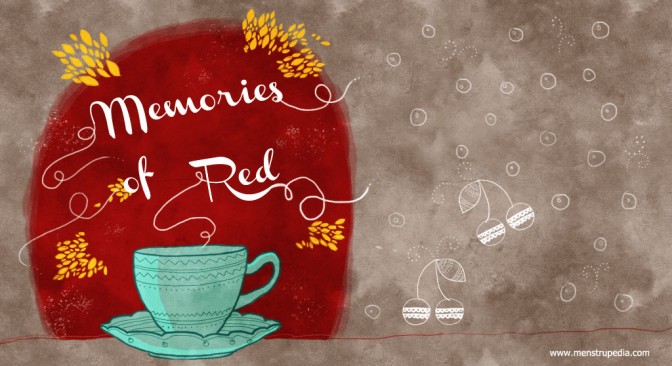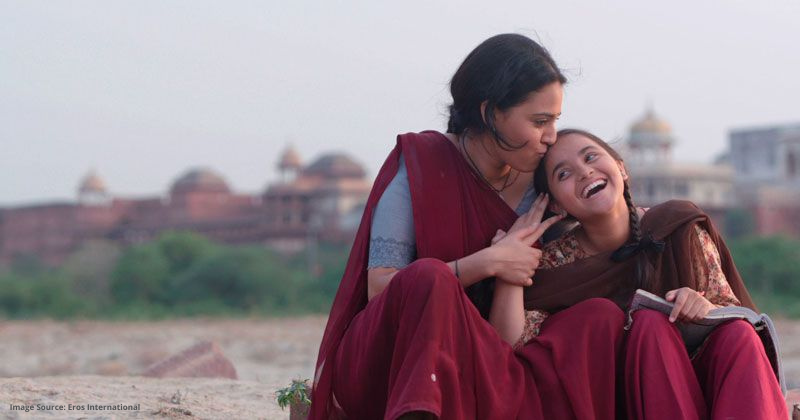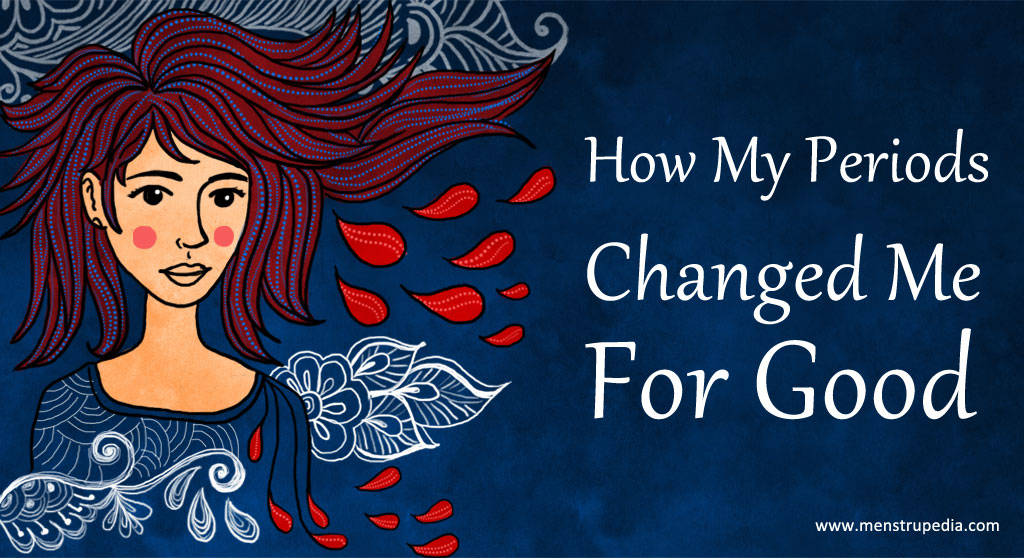In the living room sits a brown recliner covered with plastic – it is placed there to protect the sofa fabric from the direct rays of the sun that assaults it every morning at 8:00 am sharp. This plastic also cushions the occasional chai that spills from the ubiquitous brown cup he had been using for the past twenty years. Sitting here waiting for Manisha to serve me his chai, he watched the world awaken. Every morning, he saw Bihari walk to the dairy to buy only enough milk to make two cups of Chai. He waves to Ramaji wearing sneakers and track pants, on her way to Kootum Park for her daily one-hour walk. He eavesdrops everyday on Panghat’s conversations with his mom protesting against eating the dal she has cooked, preferring the sweet delights Surekha frequently brings.
Today however,[inlinetweet prefix=””” tweeter=”” suffix=”””] the security of his routine is broken by a crimson red stain glaring at him from his brown recliner.[/inlinetweet]
“Manisha, yeh kya hain?”
Manisha walks in from the kitchen with his chai. He points in horror to the bloody spot.
Forgetting the gray hair on her head and the wrinkles on her forehead, Manisha squeals like a sixteen-year old girl. “Taramina Taramina!” She rushes off to the kitchen to look for her daughter, as if the milk in the pot is about to overflow through the burners.
Unsure of what to do and desperately wanting to sit through his morning ritual of drinking chai and observing neighbors, he proceeds to remove the bloody menses with the alcohol he keeps in the medicine chest for cuts while shaving. By now his chai has gone cold, although its warm brown color tempts him to take another sip. Frustrated, he goes to his computer to try to start writing as he does so daily. But again his routine is disrupted. Smells from the kitchen pick at his memory. “What is that blasted woman up to?” Unable to concentrate, he decides to take a walk.
The power of smell to evoke memory – He noticed her because she knocked on his door wearing a crimson sari. She said she was from Upanshallah, the city known for its crimson dyes. When they got married, he discovered that every month when she was menstruating, she adorned herself in red. She was glorious during those times.[inlinetweet prefix=””” tweeter=”” suffix=”””] He got into the habit of gifting her something red during those days. A red lipstick, a red rose, a red bangle.[/inlinetweet] Chocolate covered cherries were her favorite.
[inlinetweet prefix=””” tweeter=”” suffix=”””]It was her habit to bake crimson cakes for young girls attaining puberty.[/inlinetweet] She welcomed them into womanhood in this way. To welcome the menses of the girl who left a stain on his couch he orders a box of chocolate covered cherries. As he is about to pay the shopkeeper, he sees of a curious scene. A young woman wearing Indian clothes is standing outside the house with her husband. She looks Indian. Her accent though tells him that she is American. It appears that they have come for her husband’s grandmother’s funeral. It doesn’t seem like she speaks Hindi; definitely isn’t a Hindu. She is asked if she is on her period. To this question, she innocently answers in the affirmative. She is told to sit outside the house. [inlinetweet prefix=””” tweeter=”” suffix=”””]She is told that she is unclean. She is told that her filth will soil the ceremony.[/inlinetweet] The priest performs the puja. She complies in silence to the menstrual exclusion, not knowing her entire future will be framed by this one action.
The old man could not believe the scene that just happened before his eyes, the box of chocolates covered with cherries falls to the ground in pin drop silence.
 Author – Roxann Dalrymple
Author – Roxann Dalrymple
Roxann Sharma is an expat living in India. Born in Jamaica, Roxann has lived most of her life in the United States, where she was a college professor of literature. She has spent the last two years in India fighting for custody of her three year old son. She blogs here.
Edited by – Divya Rosaline and Palashi Vaghela








